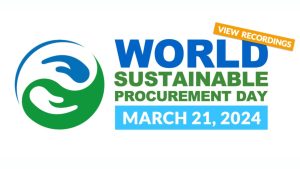This question was touched on from many angles by several papers at the recent Transport Forum meeting in Stellenbosch.
Dr. Jan Havenga, Centre for Supply Chain Development at the University of Stellenbosch and a self confessed ‘road freight evangelist’, threw some light on the peculiarities of South African logistics when compared with the international benchmarks set by the United States and the European Union.
South Africa has a particularly low load density per kilometre (tons per kilometre) – increasing the density of loads is key to lowering costs. Low load density combined with South Africa’s relatively low distance networks saddles the country with higher costs.
Furthermore, the US and EU transport much higher volumes and productivity (increased tonnages) means lower cost and higher profit margins for the carriers.
However, not only is South Africa’s developmental state found wanting against mature economies, it also lags behind its peers – Brazil, China and India – in key strategies such as increased foreign direct investment, domestic investment and fast deregulation, factors which can dramatically increase business productivity and operational efficiencies, said Havenga.
Other anomalies that inflate transport costs in South Africa include exports and imports accounting for 28% of South Africa’s GDP and as much as 30% of the cost of new motor vehicles in South Africa being attributed to logistics.
Additionally, between 2009 and 2011 the cost of externalities such as electricity and water increased by 40% and the cost of fuel escalated by 47%, remarked transport consultant Max Braun.
Braun further identified cost modelling elements that contribute to ‘cost creep’, mostly outside of an organisation’s control, such as looming carbon taxes; the cost of equipment, parts and tyres (which have risen by 25% over the past 12 months); foreign exchange rates and their volatility; fuel costs (with a heavy hike weighing in as we publish); tolling on Gauteng’s highways, and escalating overheads (offices, warehouses and yards).
Cobus Rossouw, Chief Integration Officer at IMPERIAL Logistics, spent time analysing a case study on the significant seasonal load imbalances that are found along the Cape-to-Gauteng corridor, which can climb and fall by as much as 100% and which require expert management skills. Rossouw suggests that the real solution lies in an innovatory approach – managing the demand-side of your clients and customers and thereby equipping yourself to plan far in advance.
The Forum maintains that transport can be a profitable and value-adding enterprise. However, the South African industry requires the training and tools to analyse, understand and manage costs better.
SmartProcurement is hosting its Spend Analysis Workshop in Centurion on 30 May 2012. You will be pleasantly surprised at the number of new generation online-tools and technology that are freely available to assist you in this skills set.
For more information contact Erieka Santos on events@smartprocurement.co.za or 087 805 0893.


























